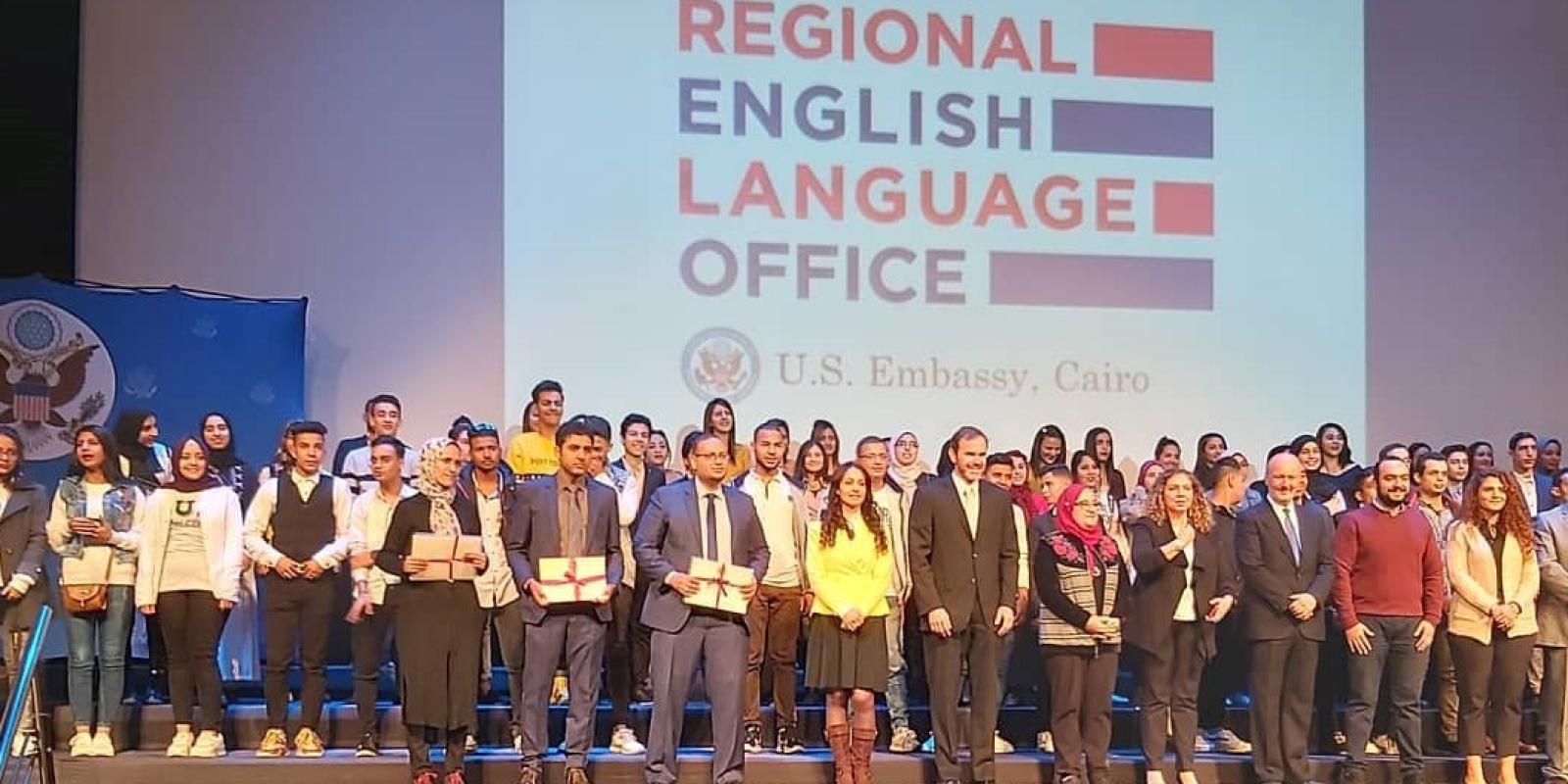
Access Goes Above and Beyond for Hundreds of Students Across Egypt
As one of SCE’s most robust programs, the English Access Microscholarship Program, or Access as it’s commonly known, witnessed quite the dynamic and resilient year.
The global scholarship program is supported by the U.S. Department of State that provides a foundation of English language skills to talented 13-18 year-olds from economically disadvantaged backgrounds over the course of two years. The objective is to catalyze self-confidence, stronger critical thinking skills, and better opportunities to study or obtain jobs. Since its inception in Egypt in 2006, over 2000 students in more than 16 cities from all around the country have participated in access classes delivered by SCE. Management of this program is shared with AMIDEAST, with both organizations working in close and collegial coordination.
720 Egyptian students of the eleventh cohort walked across the Opera House's graduation stage on December 15, 2019. They hailed from Alexandria, Assuit, Benha, Beni Suef, Cairo, Damanhour, Damietta, Edfu, Esna, Hurghada, Ismailia, Kom Ombo, Luxor, Mallawi, Mansoura, Minya, Nubia, Port Said, Qus, Samalout, Sohag, and South Sinai.
This ceremony itself was wonderfully atypical of the norm. Despite their distance (and before all of us became much more proficient in remote work), the graduating cohort worked together over the course of 2-3 months to create multiple performances and sketches that showcased their talent and cultures, as well as the interpersonal and language skills they developed through Access. And they did not disappoint. The stage was live with energy and pride.
As we welcomed and began instruction with the new cohort of 182 students, the world was simultaneously hit with the toughest test we’ve encountered in our lifetimes, COVID19. The passing mark for access was to graduate this unique class without undermining their educational experience quality. The team promptly and effectively coordinated with all the stakeholders to ensure that everyone had access - pun intended. They provided support to secure laptops, WiFi connections where needed, adapted the curriculum learning methods and dedicated training to facilitate the transition. Even the bi-annual camps that normally students travel to participate in were adapted to virtual edutainment activities. Their leadership in practice was recognized as an innovation in crisis by the U.S. Embassy.
This class deserves another special recognition for the 20 additionally resilient visually-impaired students and instructors. Access Egypt is the first globally under SCE to open admission to visually-impaired learners, initially in 2016, and now again with this cohort. Initially, face-to-face classes, they also adapted as necessary to continue their learning effectively and safely online.
In many respects, the greatest recognition is renewing the grant for the next cohort of 168 in September 2020 for over $300,000. For at least the next two years, the access program runs strong and steady despite our challenging times.
And it doesn’t stop there. Access alumni can now benefit from another six months in the access alumni bridge to U.S. universities program. The bridge equips the cohort of 60 alumni, learning in sets of 20, with the necessary academic reading and writing ability, fundamentals of research, ‘21st-century skills’ (i.e., critical thinking, stress management, problem-solving, dynamics of collaborative work), and academic life skills. Their learnings at this stage (15-17 years old) are fundamental as it enhances their opportunity to pursue their higher education in AUC, the U.S., or elsewhere and smoothly transition to university academic settings through immersive concentration on learning and life skills.
And more still, distinguished graduating students are recruited as teaching assistants to new cohorts to the access program, putting their learned interpersonal and professional skills to practice. These young stars also organize small workshops and learning activities at the American Corner at Maadi public library for the neighborhood's access community.
Over the course of two years, promising youth from disadvantaged backgrounds embark on a transformative journey. With English language learning as a constant foundation, students are trained in cross-cultural communications, study management, leadership, and interpersonal skills. The program empowers this talent to pursue better educational and career opportunities and compete for future exchanges and study in the United States. Ultimately, it is about access.